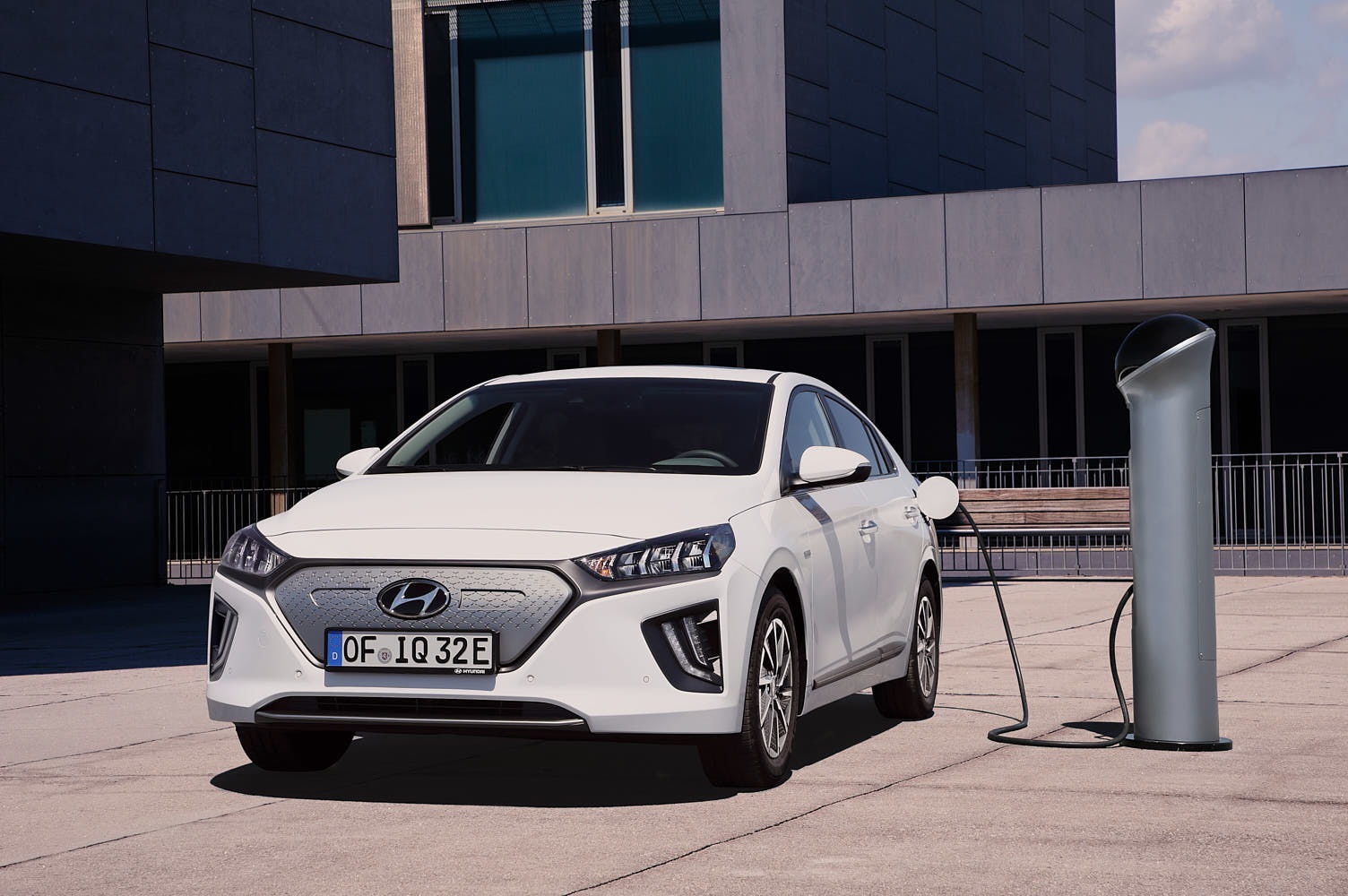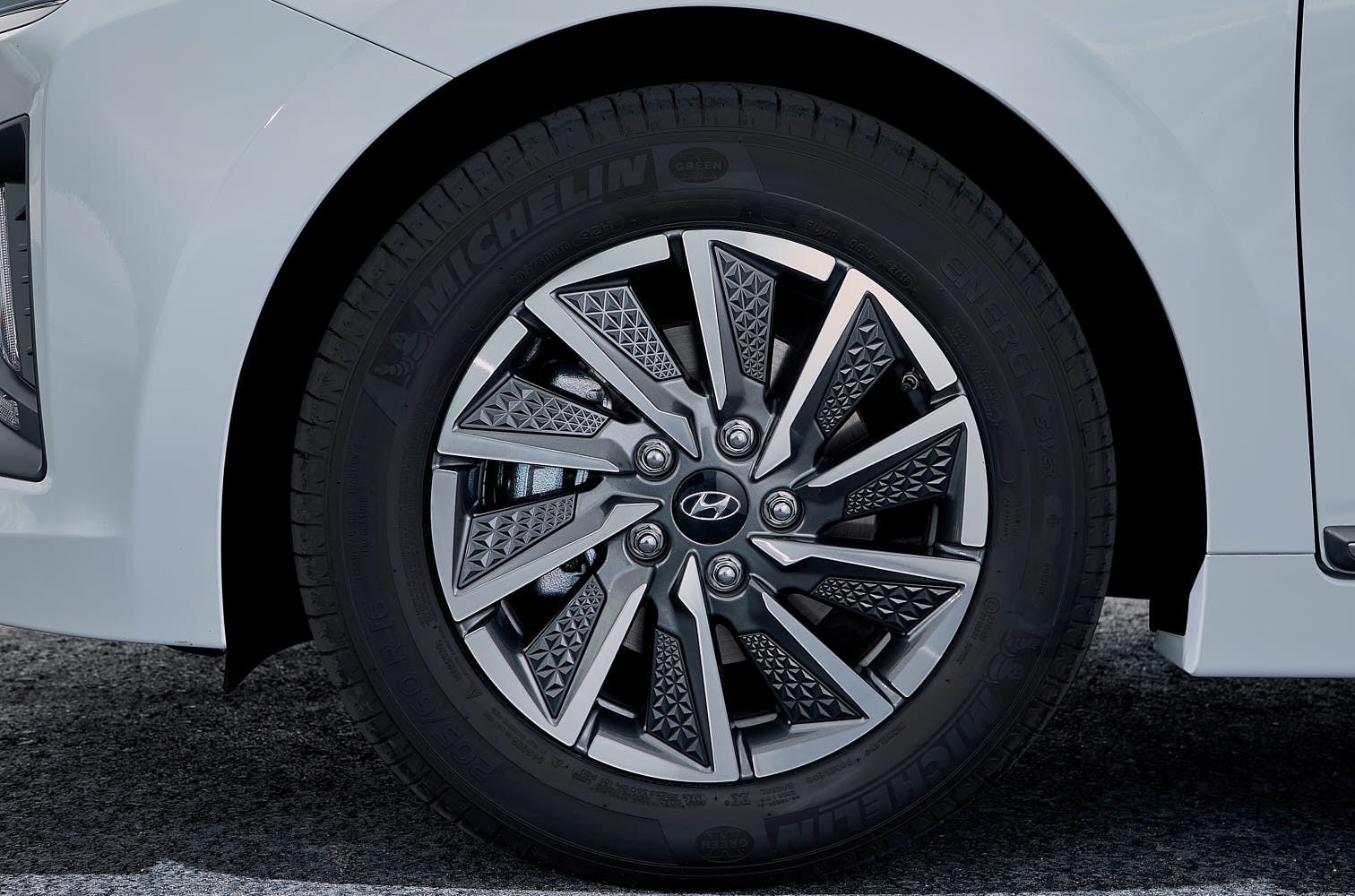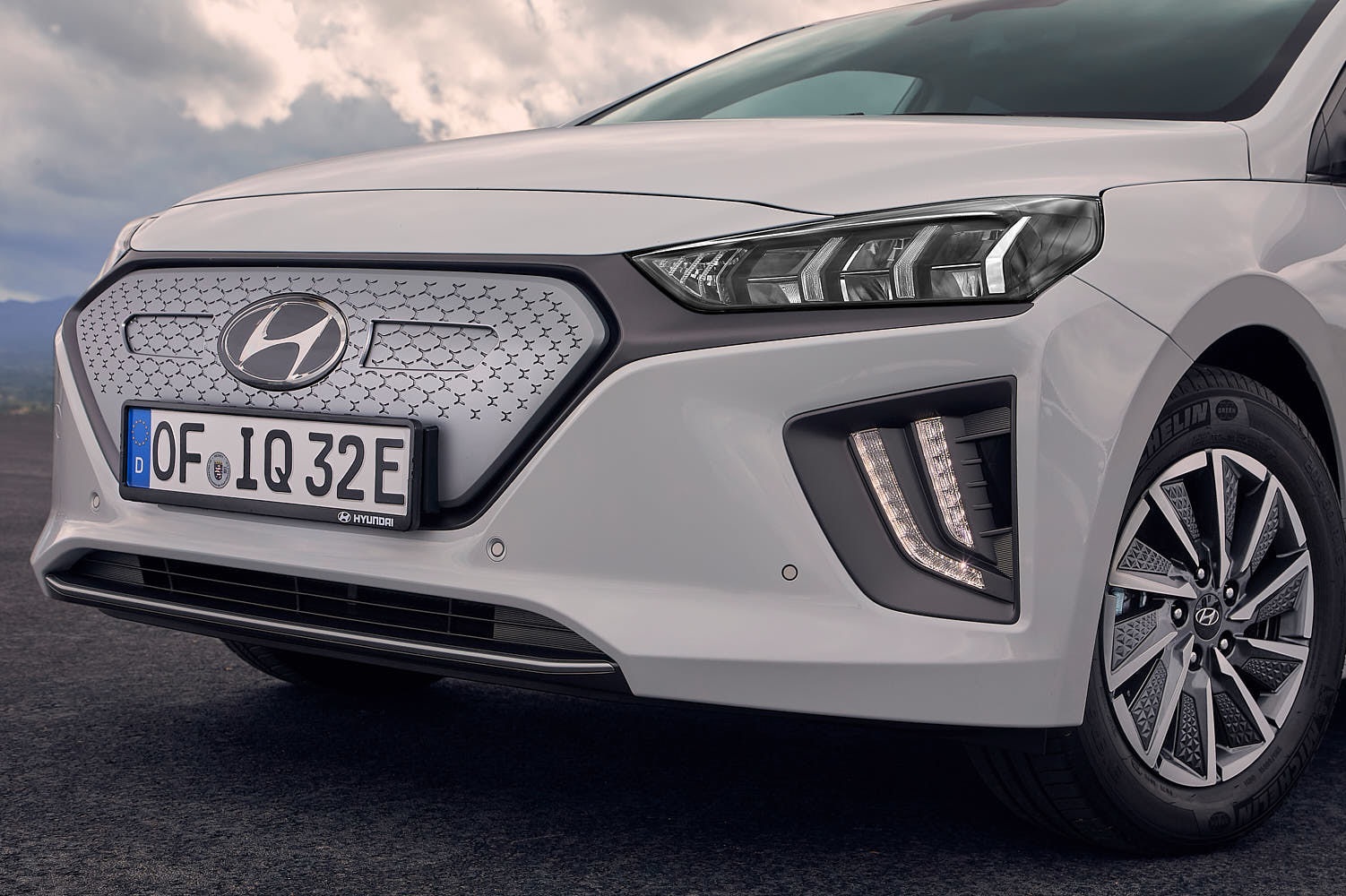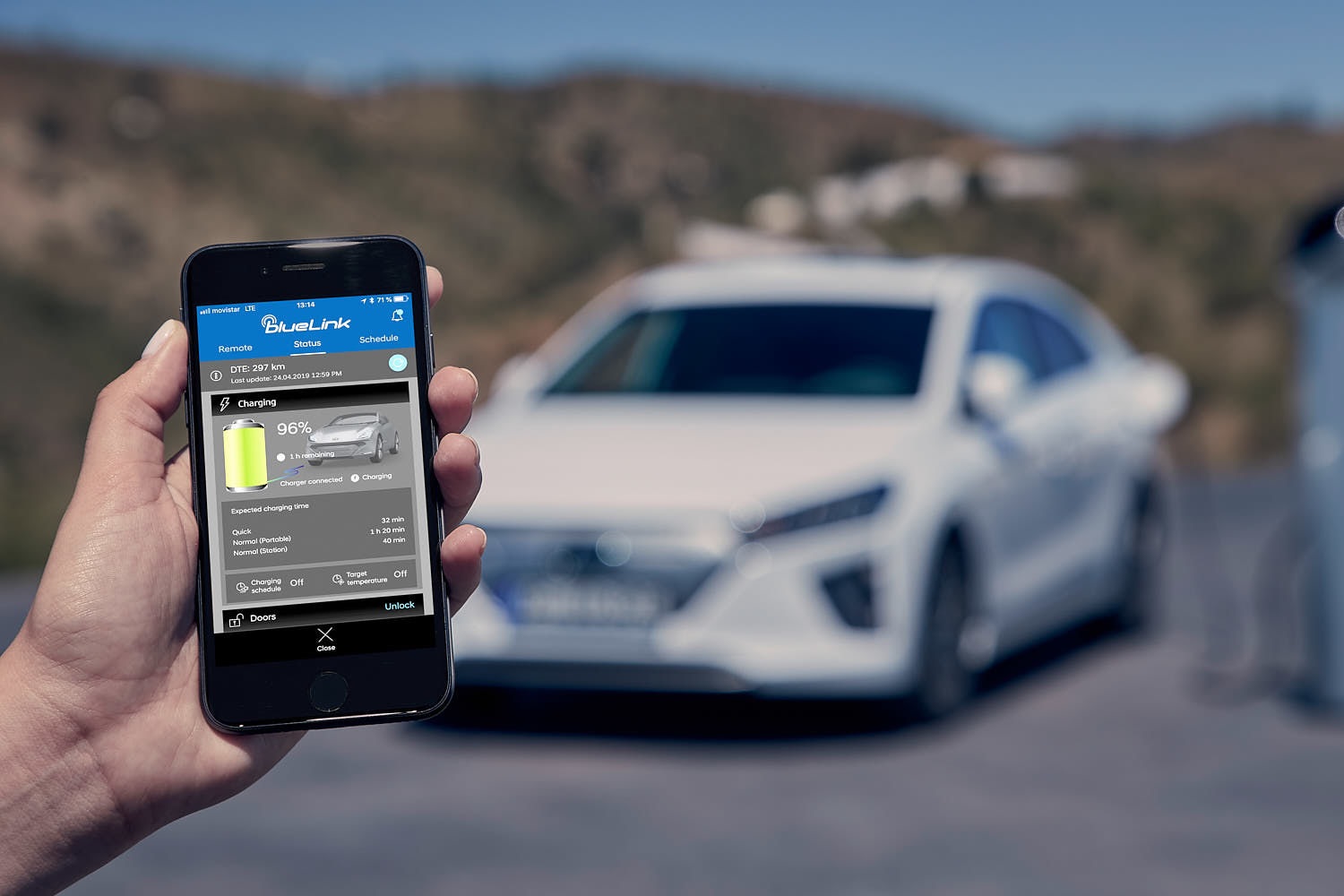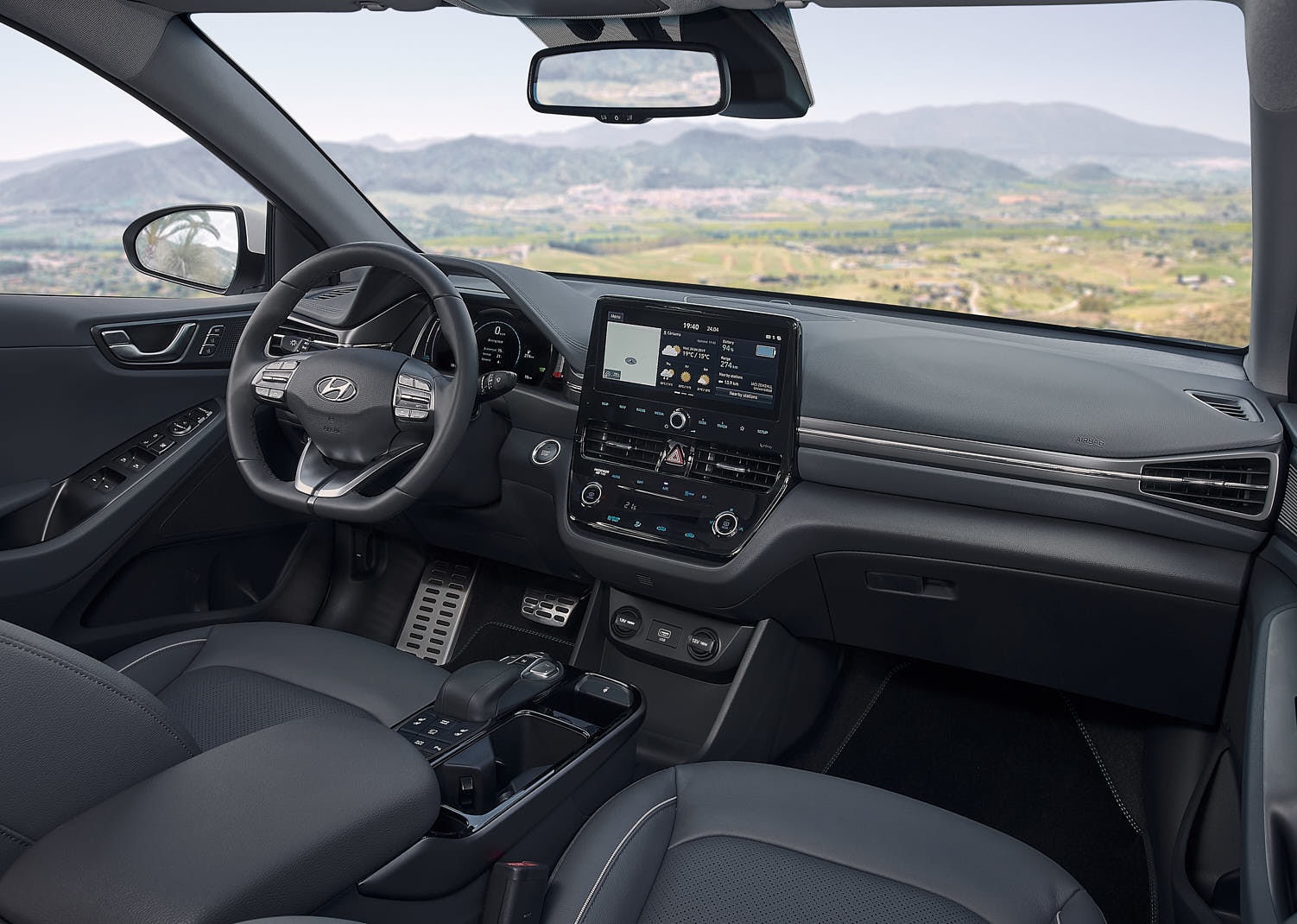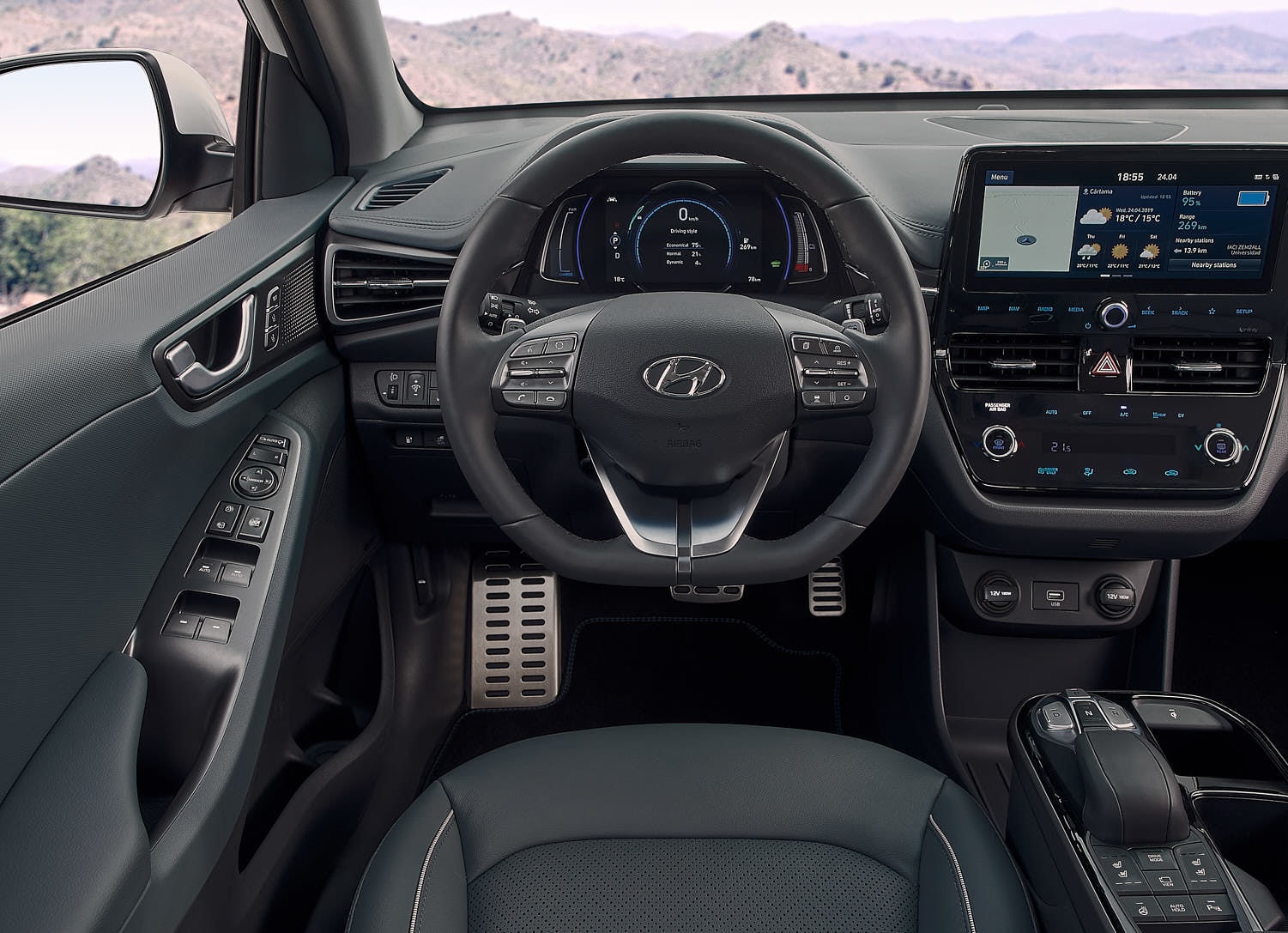The battery technology that powers electric cars is advancing at such a rapid pace that automakers are able to make meaningful range increases during a model’s life cycle. Hyundai, a discreet leader in the field of electrification, has made the electric variant of the Ioniq more usable by fitting it with a bigger battery pack that delivers more driving range, and a more powerful electric motor. The updates only apply to the European-spec car for the time being, but American motorists could benefit from them sooner or later.
The most significant changes are found under the sheet metal. The size of the Ioniq’s battery has grown from 28 to 38.3 kilowatt-hours, which naturally unlocks more driving range. Hyundai is targeting a 183-mile range when the hatchback is driven through the European WLTP cycle, though that testing regime tends to tilt on the optimistic side of the scale. We believe its EPA rating would fall closer to the 170-mile mark. That’s still a significant upgrade; to add context, the 2019 Ioniq is rated at up to 124 miles.
Hyundai fitted the Ioniq with a quicker onboard charger that lets owners achieve an 80-percent charge in 54 minutes when using a 100-kilowatt-hour fast charger. And, the electric motor now makes 134 horsepower, up from 118 before. Torque stays flat at 218 pound-feet. In other words, the Ioniq Electric is now a little bit quicker, faster to charge, and not as rushed to visit a charging station when it’s on the road.
The changes made to the powertrain are complemented by a new-look grille that helps the Ioniq Electric stand out from the Hybrid and Plug-In Hybrid variants, plus 16-inch alloy wheels designed with an eye on aerodynamic efficiency. There are interior enhancements, too, like a bigger, 10.25-inch screen for the infotainment system, and a redesigned climate control panel that’s more ergonomic than before. After driving the Ioniq Electric, Digital Trends called its cabin refined and handsome. The changes look like they make it an even nicer place to travel in than before.
The updated Hyundai Ioniq Electric will begin arriving in showrooms in September, two months after its hybrid and plug-in hybrid siblings. As of writing, the updates have only been announced for the European-spec variant of the car. Hyundai hasn’t revealed whether the American-spec model will benefit from the same upgrades, and a spokesperson for the company told Digital Trends it has nothing to announce as of May 2019, but it’s not too far-fetched to speculate that at least the bigger battery pack will sail across the Atlantic sooner or later — more range in an electric car is difficult to argue against.
